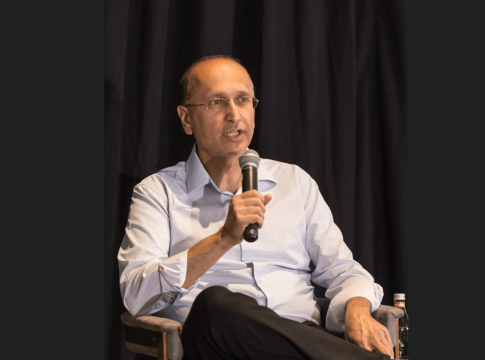AI’s Revolution: Transforming Heavy Industries
Navin Chaddha, the managing director of Mayfield, a seasoned venture capital firm, is spearheading a shift towards AI-driven solutions in traditionally labor-intensive sectors such as consulting, law, and accounting. Speaking at a recent TechCrunch event, Chaddha emphasized his conviction that AI can streamline these industries, potentially generating software-like profit margins.
The Shift to AI: A Historical Perspective
Having navigated numerous tech waves over the last five decades—from mainframes to cloud computing—Chaddha recognizes AI as a transformative force. He likens this moment to the advent of e-business in the late 1990s, which forced traditional brick-and-mortar companies to adopt digital strategies. In his view, AI’s capabilities extend far beyond simple automation; they represent a partnership between humans and machines designed to enhance productivity.
The Dual Model: Organic and Inorganic Growth
Chaddha pointed out that businesses can evolve through two primary models: organic growth through innovation or inorganic growth via acquisitions. For example, emerging technologies can take over repetitive tasks, freeing human workers for higher-level functions. He believes firms that harness AI effectively could lower labor costs while still delivering top-notch service—customers would only pay for AI use, shifting the economic model to an outcome-based pricing structure rather than hourly billing.
Targeting Untapped Markets
Chaddha offers a fresh strategy for startups: rather than competing directly with giants like Accenture or McKinsey, small companies should focus on underserved markets. In the U.S. alone, there are approximately 30 million small businesses that typically can’t afford specialized knowledge workers. By providing AI-enabled services that cater to these organizations’ basic needs—like scheduling or consultancy on startups—there’s a substantial opportunity for growth.
The Innovator’s Dilemma
Distinct from larger firms, Chaddha contends that many established companies face the “innovator’s dilemma.” As these firms grapple with traditional revenue models, they risk overlooking the necessity of embracing new, agile frameworks driven by AI. Their ongoing focus on existing client relationships could leave them vulnerable to nimble startups that can adapt and disrupt.
The Concept of AI Teammates
One of the key ideas championed by Chaddha is the concept of AI "teammates." Unlike basic AI tools, these digital companions are designed to work collaboratively with humans, facilitating shared goals and enhancing outcomes. This evolution suggests a move toward more integrated AI solutions, allowing for more complex tasks to be delegated to machines while maintaining human oversight.
Addressing the Human Impact
However, Chaddha acknowledges the potential for job displacement due to increased automation. He stresses the importance of reimagining the workforce. History has shown that while job roles may shift, new markets and opportunities often emerge, as witnessed with tech innovations like Microsoft Word and the rise of ridesharing services.
Conclusion: An Evolving Landscape
As we stand on the brink of this AI-driven transformation, the landscape for consulting, law, and accounting is set for upheaval. While the immediate future may have its challenges, the long-term potential of AI to grow businesses and reshape traditional roles is promising. As Chaddha succinctly puts it, without pain, there’s often no gain. The challenge now lies in harnessing AI’s power responsibly and creatively to unlock new opportunities across industries.

Writes about personal finance, side hustles, gadgets, and tech innovation.
Bio: Priya specializes in making complex financial and tech topics easy to digest, with experience in fintech and consumer reviews.

